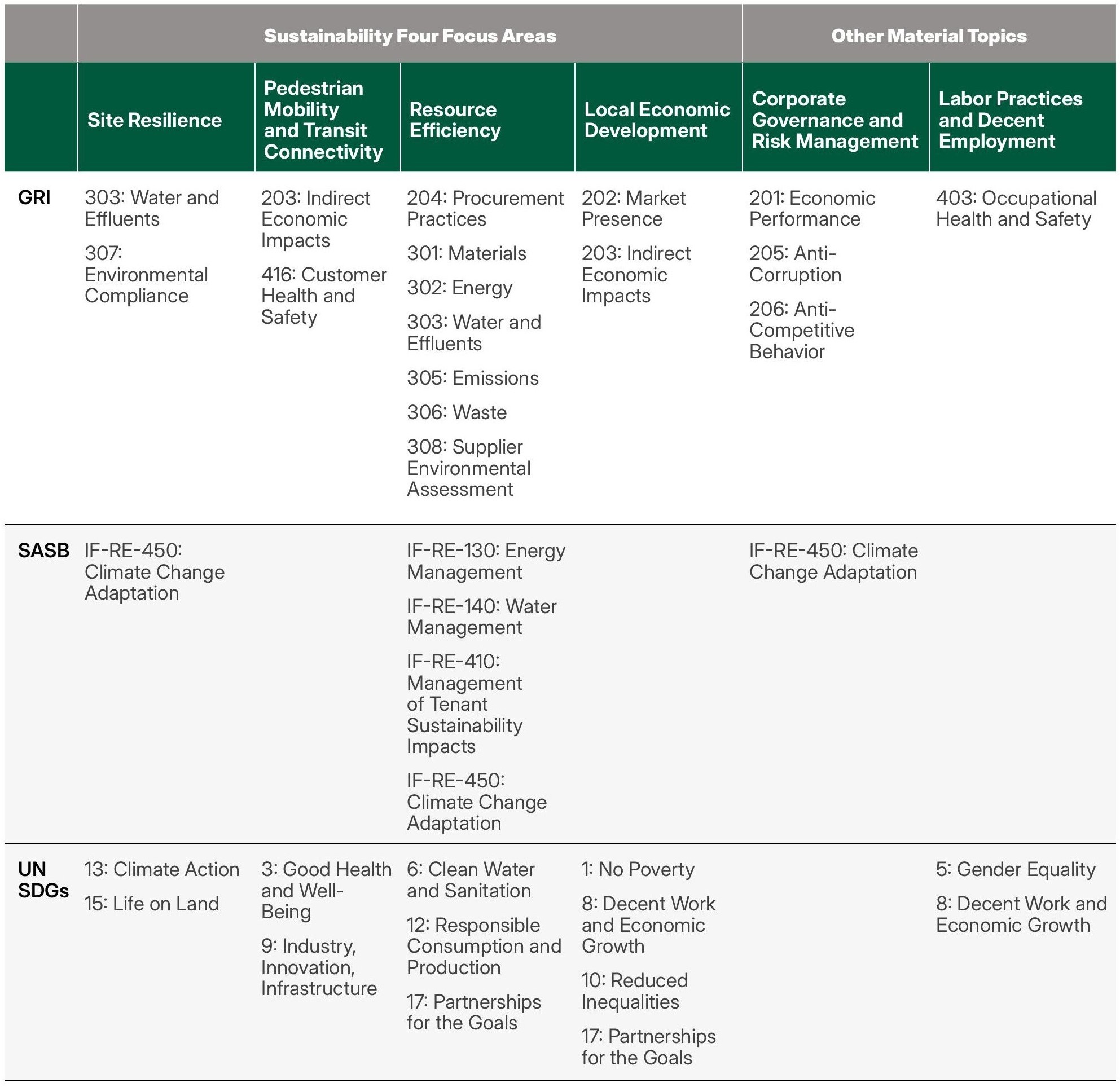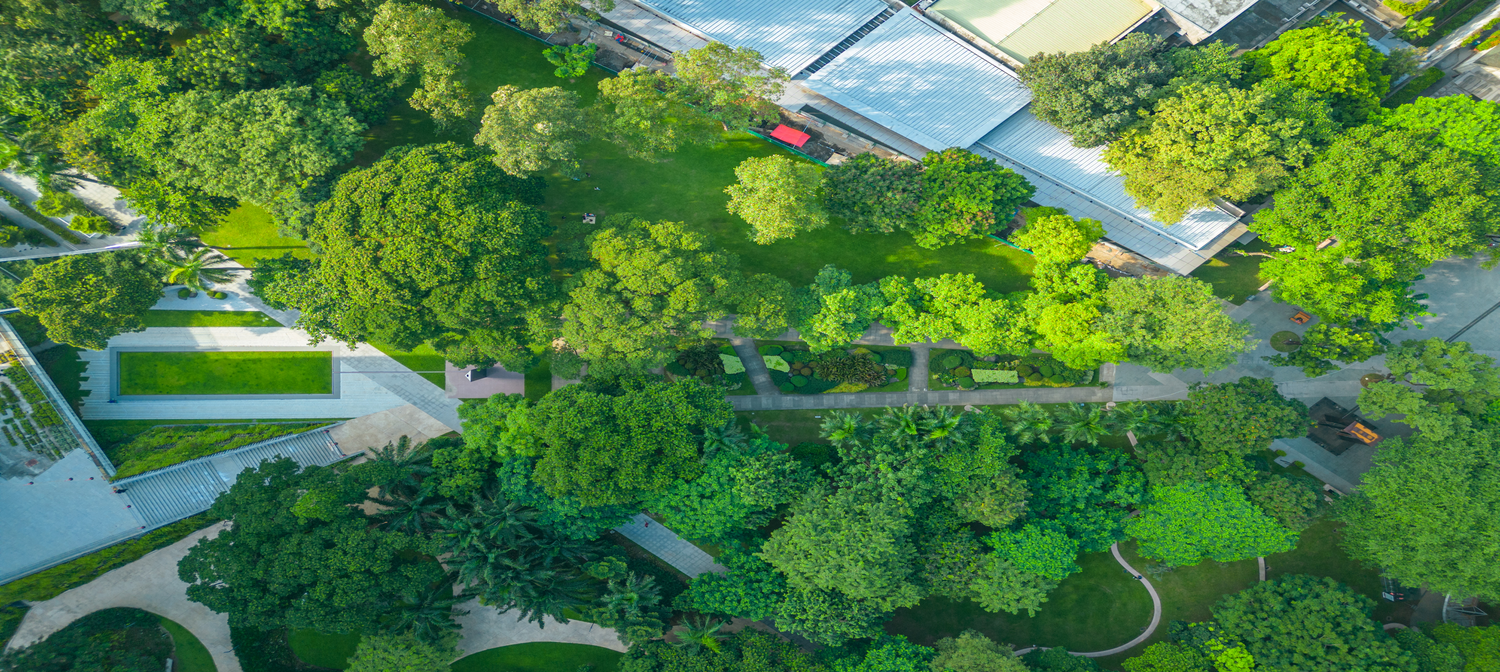Our Four Focus Areas
Our Four Focus Areas
AREIT has embraced Ayala Land’s sustainability four focus areas – site resilience, pedestrian mobility and transit connectivity, resource efficiency, and local economic development – reflecting the Sponsor’s practice of monitoring the economic, environmental, and social impacts of its developments.
Originally identified in a 2014 materiality assessment, these four focus areas remain relevant today, alongside issues emerging from the pandemic. They serve as fundamental frameworks for sustainability efforts within the Ayala Land Group, AREIT included, guiding organizational operations, mitigating sustainability risks, and delivering value to the business, environment, and society.
With the establishment of the United Nations Sustainable Development Goals (SDGs) in 2015, Ayala Land aligned each of the focus areas with the relevant SDGs.
Site Resilience
Extreme weather events, rising sea levels, and other hazards associated with climate change can undermine AREIT’s properties and operations. Sponsor Ayala Land strengthens the corresponding sites to enable them to quickly recover from environmental stress, by undertaking technical due diligence to screen for geohazards, providing space for refuge and rainwater absorption, and using native trees to enhance biodiversity and ecosystems.
Pedestrian Mobility & Transit Connectivity
AREIT properties are located within the master-planned Ayala Land estates, ensuring mobility and connectivity. These estates offer alternatives to using motor vehicles, with numerous walkways, pedestrian-only areas, and convenient access to transit stops and transportation terminals in these places.
Resource Efficiency
AREIT supports its Sponsor’s goal of reaching their Net Zero targets by 2050 for all commercial properties. Ayala Land’s operations and developments ensure that natural resources and construction materials, such as steel and cement, are used judiciously and efficiently, reducing overall consumption and GHG emissions. Energy and water conservation programs and waste management schemes with a circular economy approach in mind are also in place and are regularly audited for further improvement.
Local Economic Development
AREIT’s properties provide spaces for office and retail tenants, generating employment and business opportunities in their localities, contributing to nation building, and creating value for the community.
AREIT uses key sustainability reporting frameworks such as the UN Sustainable Development Goals (SDGs), six capitals of the Integrated Reporting Framework, Global Reporting Initiative (GRI) Indicators, Sustainability Accounting Standards Board (SASB) Material Topics, to measure and report its own performance and impact on local and global development.
The table below shows the relevant UN SDGs and GRI, and SASB topics that correspond to the Sponsor’s four focus areas. Other material topics pertain to corporate governance, risk management, labor practices, and decent employment.

